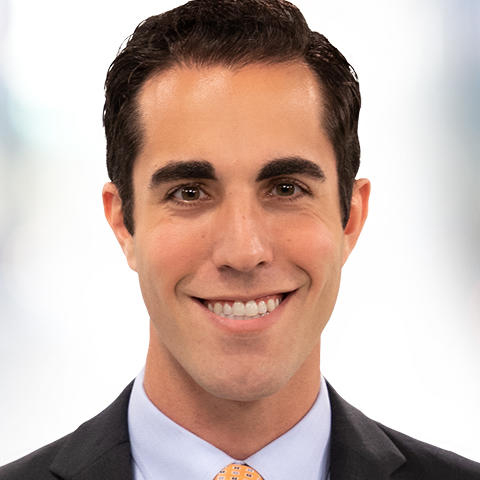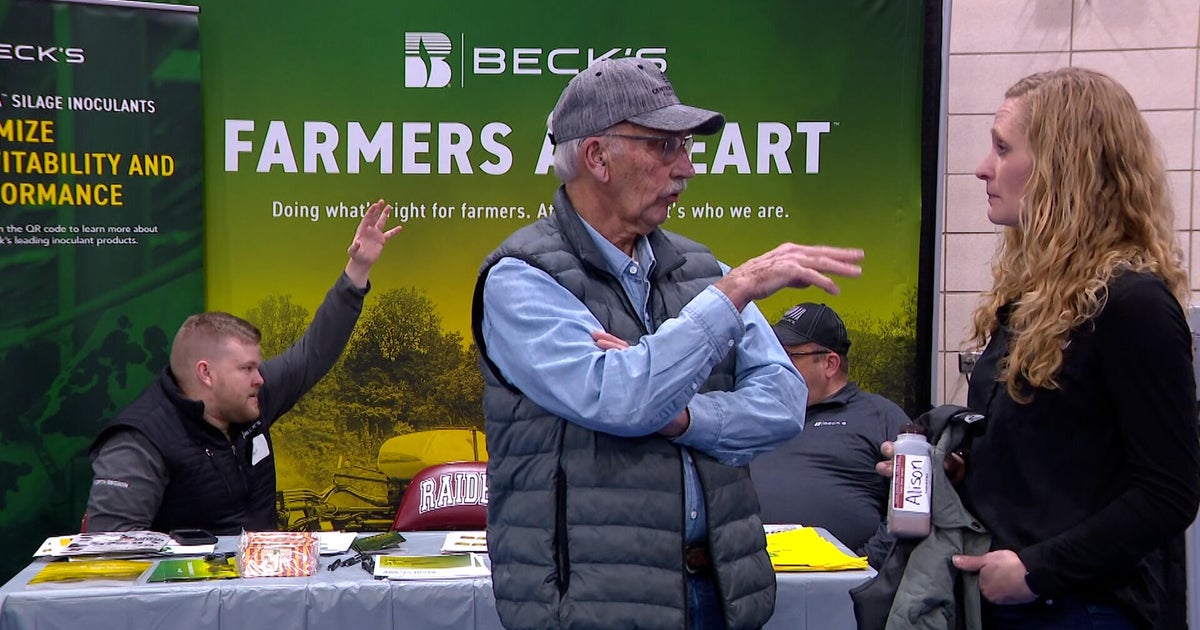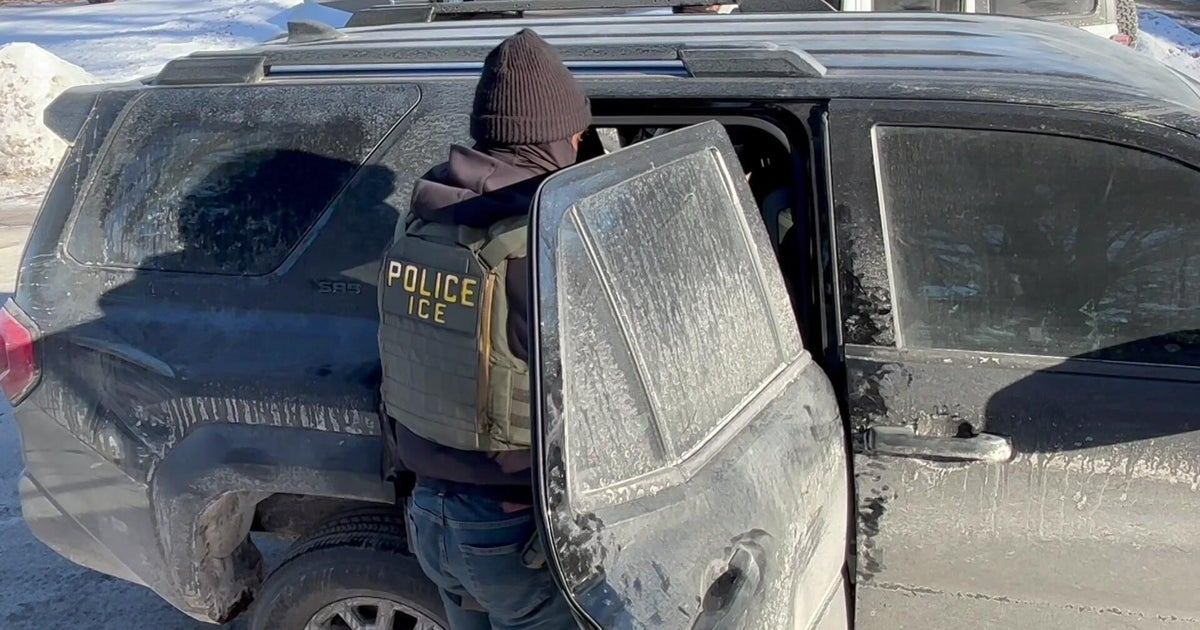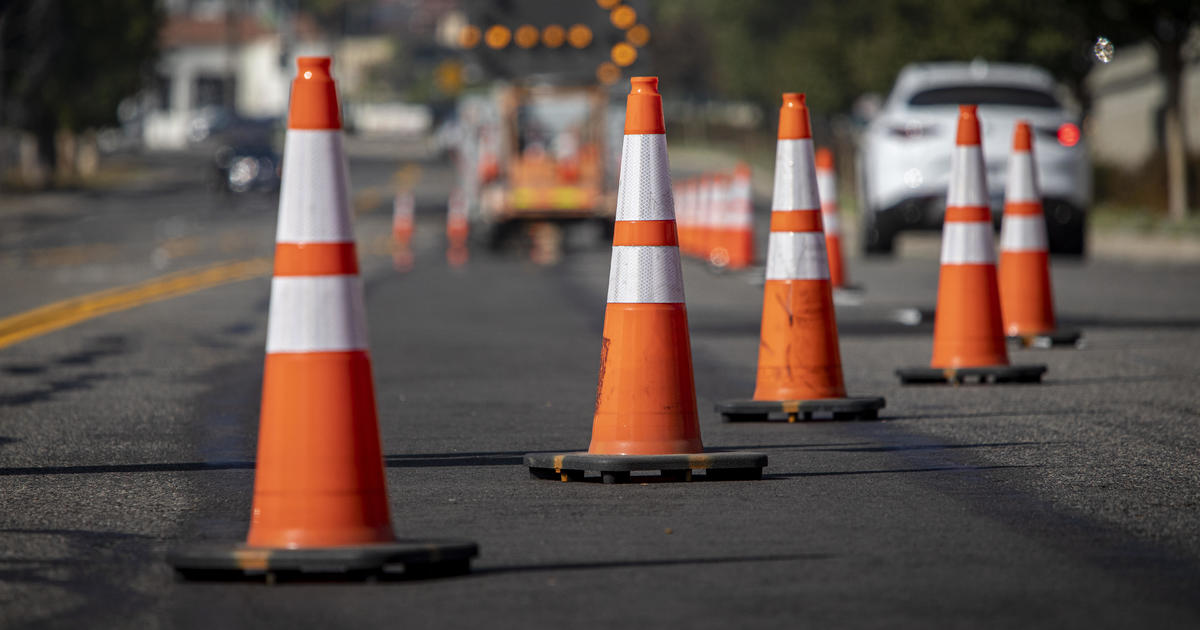Asylum seekers from Ecuador, who came to Minnesota for better lives, struggle to find work
MINNEAPOLIS — Minnesota is home to more than half a million immigrants. Census data shows most of them came here from Mexico and Somalia. More recently though, the state is seeing hundreds of people fleeing Ecuador and seeking asylum in Minnesota.
For hours, people hold out their thumbs and swarm to any car that pulls over. They're from Ecuador, new to Minneapolis, and looking for work — day jobs like moving, cleaning or construction. The competition is insane.
"Like everybody else here, when a car stops and try to pick up a guy, we all run and try to get there first and get picked, but that doesn't happen all the time. The last time I had a job here, was more than a month ago," one man said.
A section of Lake Street near the old Kmart has become a symbol of what experts say is an overwhelmed immigration system. Many of the people WCCO spoke to have fled danger in Ecuador and are seeking asylum here — a legal process that would allow them to get a work permit. But Minnesota's courts have nearly 13,000 cases in the backlog.
A woman named Alejandra told WCCO her court date is scheduled for February 2025. In the meantime, Alejandra, who was a nurse in Ecuador, comes here, always thinking of her family back home.
"Every afternoon, I make a video call with my 8-year-old son to help him with his homework, find out how his day went, and bring joy to my day," she said. "I immigrated to the United States to have a better life for me and my family, but I haven't been able to find something."
MORE NEWS: Alito extends order barring Texas from detaining migrants under SB4 immigration law for now
Nearly 2,000 Ecuadorians have immigration cases pending in Minnesota. David Wilson helps who he can as an attorney, but he says there are no easy solutions.
"There's not enough judges. There's not enough asylum officers. There's not enough government people to process the requests, and so it leaves people in limbo, wondering what to do and how to feed themselves and their children while waiting," Wilson said.
WCCO was told jobs typically pay $15 an hour but on the rare occasions they even get one, it doesn't always go well.
"Yesterday, a contractor stopped by, saying he wanted some people to work and he had a few guys in his truck, but someone said that he made him work for a week and didn't give him his check for $1,200," one man said.
Many organizations help where they can.
"They're out here trying to get a job, it's like, how do we help them keep the strength and keep them out here wanting to work," said Chris Bellanger with the nonprofit Involve MN.
Ultimately, Wilson says it's going to take political willpower to improve the system. One suggestion he has is to fund more staffing to get through the backlog.
"It's so politically volatile, but people forget they're just real lives. There are people running from real danger," Wilson said.
An immigration attorney told WCCO that being hired off the street for a day is legally similar to paying a friend to help you move. If the work becomes more consistent, then it could become a legal problem for both the immigrant and the employer.
Food shelves see surge in demand
Mark knows enough Spanish to call out for the first few people in line with tickets, but the numbers at the weekly Minnehaha Food Shelf quickly get too high for him.
"We today will feed about 320 households," said George Gallagher, food shelf manager.
Gallagher says most of the clients who come there week after week are immigrants from Ecuador.
"God is proving good for our family today," one woman said. "I got potatoes, onions, milk, cooking oil. These groceries last for one or two weeks because my family is 12."
"First off, we didn't have the right foods to give them because we didn't have beans and citrus and a lot of those things. These folks don't eat tacos. They like fruits and vegetables. They go through a lot of potatoes," Gallagher said.
"We don't want to cause problems for this city," one person told WCCO. "We always try to do things well, that's why we want to work, to pay for our own food and bring it to our family. I don't have work currently. It's been six months since we got here."
It's a difficult situation with no easy answers and the food shelf volunteers know how important their work is.
"This can take a while, waiting to get through this so they can go off to their other jobs. The roofing, the gardening, the things a lot of people just don't do anymore," Gallagher said.
Some of the food is paid for with federal funding, but much of the cost falls on the food shelf.
The bill for that one day came to roughly $3,000 — it's why they rely heavily on donations from the public.









